One of the advantages of having the keys to the front page is that sometimes I can unplug from politics and write about my real passion: military history of the 18th century. Today marks the anniversary of Frederick the Great’s signal victory over the Austrians at Leuthen and gives me a story to tell my kids a couple of times a year after Mass.
Frederick the Great has been described as the embodiment of “the utmost in military achievement that was possible in Europe in the conditions prevailing before the French revolution.” Of all of his battles, none shows Frederick’s military abilities more than the Battle of Leuthen (December 5, 1757). His leadership before and throughout the battle show his capabilities as a military commander. The Battle of Leuthen can truly be considered to be Frederick’s masterpiece.
The entire history for Prussia’s involvement in the Seven Years War is one of determination, will, and near disaster. The fact that Prussia survived (leave aside the fact that Prussia started it) the war is due totally to one man: Frederick the Great.
On November 5, 1757, Frederick’s army won a significant victory over the French at Rossbach. This battle arguably marked the coming of age for the previously mediocre Prussian cavalry under the command of the brilliant (and as it turned out syphilitic) Friedrich Wilhelm von Seydlitz.
As so often happened, a victory in one theater was offset by a defeat in another. After Rossbach, Frederick marched across Central Europe to face the Austrian offensive in Silesia and rescue the fortress of Breslau. Before Frederick could arrive, the Austrians under Marshal Daun and Prince Charles of Lorraine had taken the city (November 25). Undaunted, Frederick gathered what troops he could and moved against the superior Austrian force.
The Austrians were big fans of joint command which paired a git of the royal family with a professional soldier. This didn’t always work well. Prince Charles and Marshal Daun disagreed over whether to meet Frederick from positions inside Breslau (Daun’s position) or to advance on Frederick and engage him in the open field. Prince Charles won out and the Austrian army marched to intercept Frederick near the town of Leuthen.
On December 3, Frederick made a critical decision. Even though he knew he was outnumbered he judged that it was imperative that this threat by the Austrians be dealt with. Retreat wasn’t an option. He called together his generals and gave a speech that foreshadowed that given by many sales managers towards the end of the month (the speech is the subject of the image at the top of the page):
“The decisive moment is approaching, and I should consider that I had accomplished nothing if I left the Austrians in possession of Silesia. Rely then on this, that contrary to every rule of art, I shall attack the army under the command of Prince Charles even though it be three times my own strength wherever and whenever I may meet it.
“The number of the foe, the strength of their position, are here matters of but secondary importance. All these must yield, I feel confident, before the unflinching bravery of my troops and the judicious execution of my orders. I must venture on this step, or all is lost. We must beat the foe or be buried beneath their batteries.
“These are my feelings, and I shall act accordingly. Inform the different officers of the army of my purpose and resolves; prepare the private soldier for the events that are about to follow, impress upon his mind that I am justified in demanding the most implicit obedience from him. Finally, remember that you are Prussians and your actions will certainly be in accordance with that high distinction. If there be, however, any one amongst you who fears to share these dangers with me, he can this day demand his dismissal without being exposed to the slightest reproach from me…. Return to the camp and communicate to the regiments what you have now heard from me.
“I shall immediately after the battle dismount and convert into a garrison regiment that cavalry regiment that does not immediately, on being ordered, burst impetuously on the foe. The infantry battalion which, whatever the obstacles, halts for a moment, shall lose its standards and swords, and I shall cut the facings from its uniform. Fare you well, gentlemen for the present. We shall soon beat the enemy and meet again.”
Neither army was certain of the location of the other. First contact occurred on the December 4 when the Prussian advanced guard stumbled upon an Austrian field bakery, two hussar regiments, and about 1,000 Balkan auxiliaries (called Pandurs) in the town in Neumarkt. Frederick was rarely one to sit on his hands, he possessed the talent called coup d’oeil where a commander is gifted with the ability to size up enemy, terrain, and time in a sweep of the eye. He pushed the Austrians out of Neumarkt. And because he moved with alacrity, he wasn’t forced to fight in a series of fortified villages once the Austrians realized he was upon them.
Local intelligence started flowing in to Frederick and it was soon obvious that the Austrian army numbered about 80,000 to his 36,000 and it was arrayed on the high ground.
Frederick had two major advantages. There was immense mutual trust and respect between Frederick and his army. They feared him but he also shared their hardships and led them into battle. The Prussians were also arguably the best drilled army in Europe. In Frederick’s hands it was a flexible instrument and an extension of his will.
He approached the Austrians using the terrain to mask his numbers and to make his movements difficult to observe. The Austrians did nothing to either conceal themselves or to prevent Frederick’s cavalry from carrying out reconnaissance. Frederick marched his army across the front of the Austrians aiming for their left flank. The Austrians misinterpreted this movement as a Prussian retreat. Marshal Daun said, “These people are going; let them go.”
For an ordinary army it took hours to shake out from line of march into attack formation. The Prussian army flawlessly deployed from march formation into a furious attack on the Austrian left flank with virtually no pause.
There was sharp fighting in the Leuthen church yard where the Austrians tried to convert the village into a strongpoint.
A Prussian attack drove them out. As the Austrians moved their reserve to face this threat, Frederick launched a major attack on the opposite flank of the Austrian army.
The Austrians began to give way and the Prussians pushed their way uphill and drove the Austrians from the field. It was already past 5PM and dark. The story goes that as darkness was falling and as Prussian infantry gained the crest of the ridge and they knew they had won, an old grenadier sergeant began singing the great hymn, “Nun Danket Alles Gott,” which you still find in hymnals as “Now Thank We All Our God.”
The whole Prussian Army took up the hymn. Frederick ordered a pursuit, a very risk maneuver with a tired, battered army, in the dark, in unfamiliar territory. But the Prussian Army, still singing, pursued the Austrians until midnight, taking thousands of prisoners and preventing the Austrians from regrouping. The Austrian Army abandoned Silesia, Breslau fell to the Prussians on December 21, and all returned to the strategic position that existed at the beginning of the campaign season with the difference being that Prussia was no longer threatened with extinction.
Back to my intro. Now Thank We All Our God is in Catholic hymnals. Considering its roots in the German Reformation and Lutheranism this is a triumph of art and faith over mere sectarianism. A couple of times a year my parish uses it as a recessional hymn… when our choir isn’t playing the My Little Pony knock offs written by Marty Haugen and gay-married, former Jesuit priest Dan Schutte. Sometimes, with just a little effort, you can imagine that grizzled old grenadier who, for the last four or five hours, was damned sure he was going to die but he was going to do his duty on the way out. For his king, for his regiment, and most of all for his comrades. You can feel his relief when he crests that ridge and his foes are flying before him and he’s alive and unscathed despite the slaughter. You can hear those tens of thousands of voices singing in the dark as they pursue their enemy and guarantee their country will survive for one more year. And on the way home I make the kids unplug from their electronics and listen to Dad tell them the story of a daring king, a perfect instrument of war, and unshakable faith.
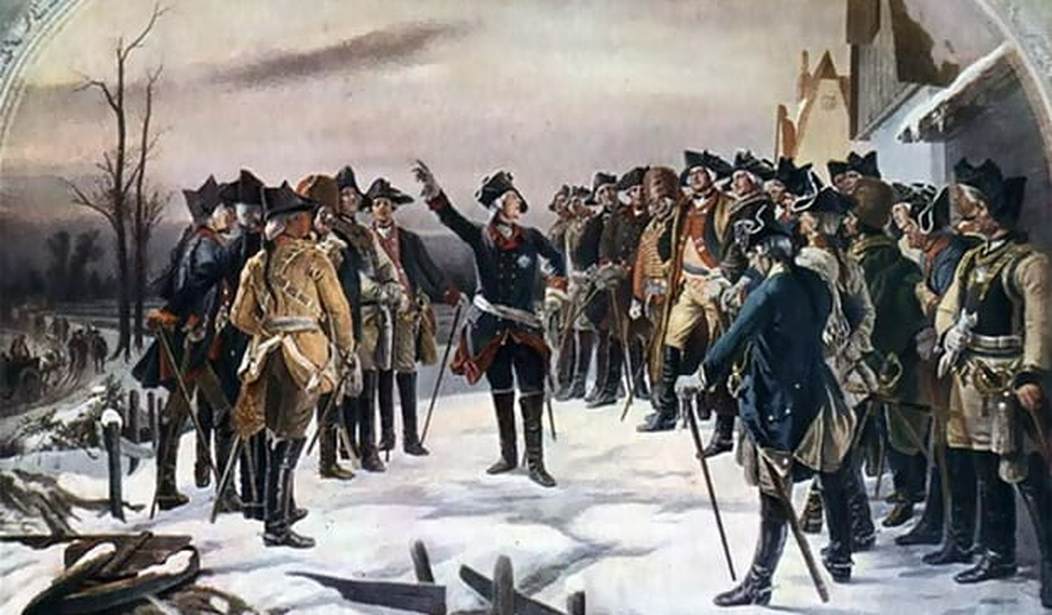






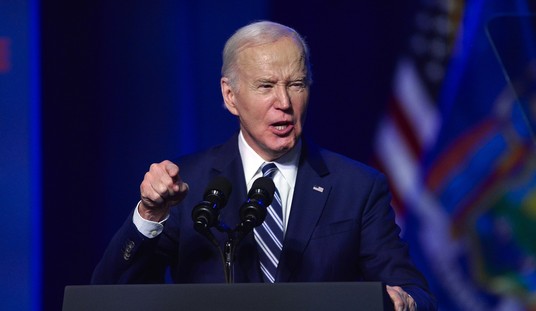

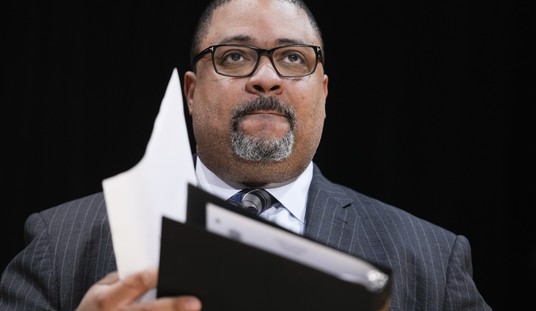
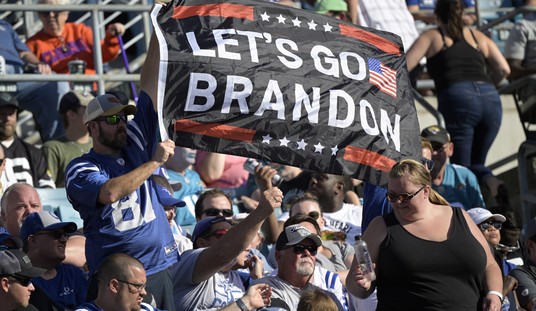


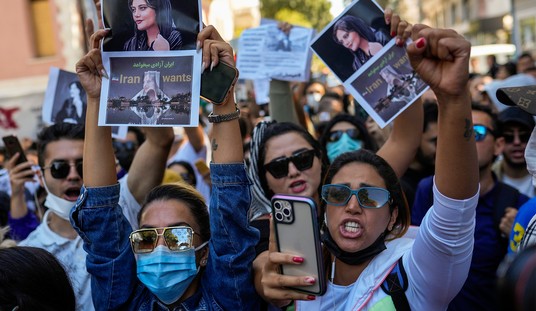



Join the conversation as a VIP Member